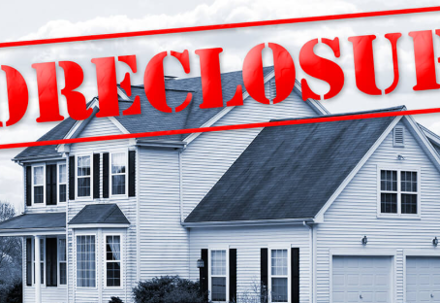Foreclosure is a legal process where a lender (mortgagee) initiates court proceedings to reclaim an asset (i.e. the house) and/or receive payment from a homeowner (mortgagor) on the outstanding balances of the debt owed.
The process begins when a homeowner starts missing their mortgage payments. The lender will contact the borrower in an attempt to collect the missed payments.
Prior to initiating court proceedings, the lender will send out "notices" to the borrower. First, you'll see a 90-day pre-foreclosure notice (residential 1-4 family homes), which is aimed to give the borrower enough time to resolve the default.
If the borrower still fails to make payments or cure the default, the lender will then file a "summons and complaint" in court while simultaneously filing a "notice of pendency" on the property.
Depending on how service was completed (e.g. personal service or affixing to your door) will depend on whether you have 20 or 30 days to either make an appearance or file an "answer" to the complaint.
IMPORTANT: once you are "served" reach out to a foreclosure defense attorney right away!!
Throughout the process, the borrower have a right to "settlement conferences" which is a meeting with both parties (lender and borrower) to discuss/negotiate in good-faith a potential outcome and alternative to foreclosure. This can include submitting a loan modification or "reinstating" the loan if you have the means to pay the balance.
Should no resolution be reached, the court proceedings will continue.
If there is no "material facts" to dispute, often a lender will file a "Motion for Summary Judgment" which asks to court to render a decision without having to move forward with the court proceedings.
If no opposition to the MSJ is filed, you'll see an automatic order granting the relief to the lender. At which time, the court will then appoint a referee and the lender will file a judgment for sale (JFS) while also providing all the appropriate notices.
When the sale is determined, the property is sold at a public auction and the winning bidder will get a "referee's deed."
IMPORTANT: In New York, homeowners have the "right of redemption" all the way up until the sale, meaning you can pay the balances owed and keep your house before the public auction occurs.
If the borrower remains in the home after the sale, the new homeowner will initiate what we call "post-foreclosure eviction proceedings" which is done through a separate legal process.
Overall, the process can take time and will have a lot of moving parts. It is critical you hire an experienced attorney to handle your case and to contact them as soon as you are served with notices from the lender.
If you have any other questions, please contact SNIDER LAW PLLC today!!

